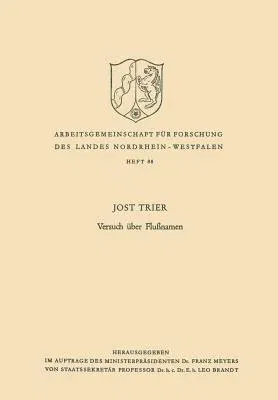Jost Trier
(Author)Versuch Über Flußnamen (1960)Paperback - 1960, 1 January 1960

Qty
1
Turbo
Ships in 2 - 3 days
In Stock
Free Delivery
Cash on Delivery
15 Days
Free Returns
Secure Checkout
Part of Series
Arbeitsgemeinschaft Für Forschung Des Landes Nordrhein-Westf
Part of Series
Arbeitsgemeinschaft Fur Forschung Des Landes Nordrhein-Westf
Print Length
46 pages
Language
German
Publisher
Vs Verlag Fur Sozialwissenschaften
Date Published
1 Jan 1960
ISBN-10
3663008622
ISBN-13
9783663008620
Description
Product Details
Author:
Book Edition:
1960
Book Format:
Paperback
Country of Origin:
US
Date Published:
1 January 1960
Dimensions:
24.41 x
16.99 x
0.25 cm
ISBN-10:
3663008622
ISBN-13:
9783663008620
Language:
German
Location:
Wiesbaden
Pages:
46
Publisher:
Series:
Weight:
90.72 gm

